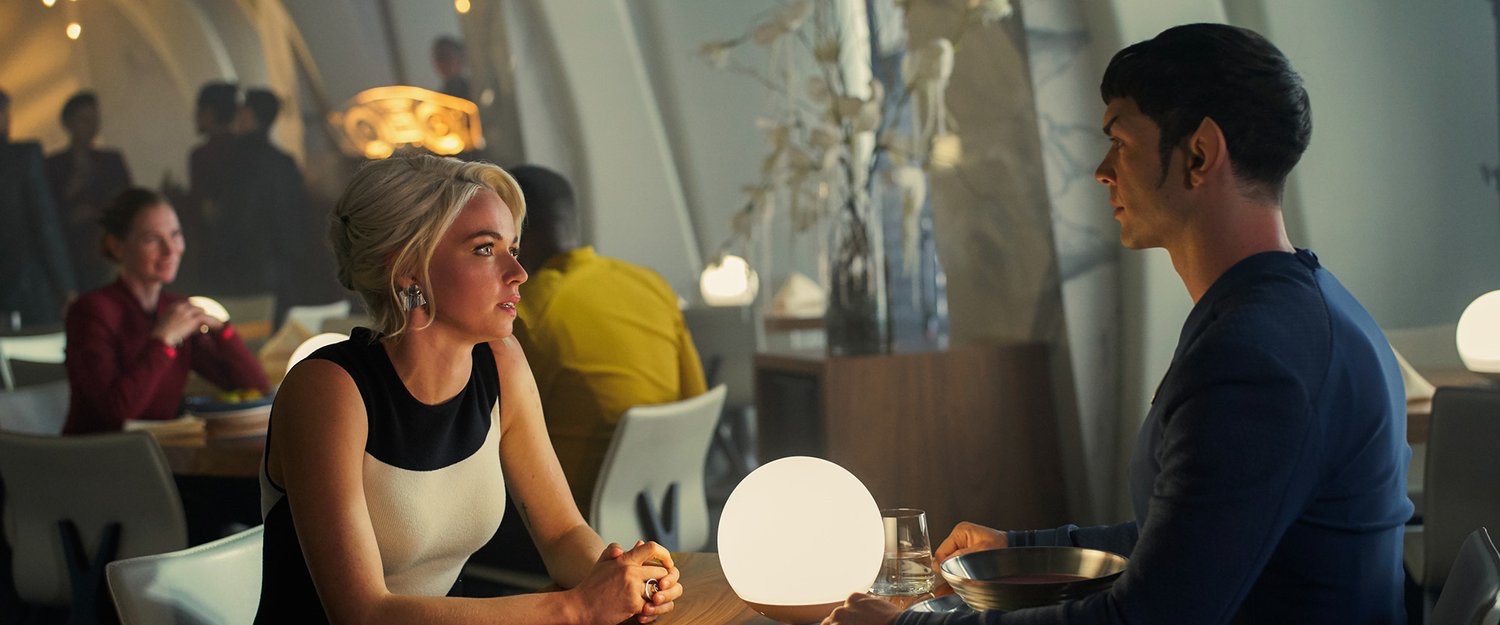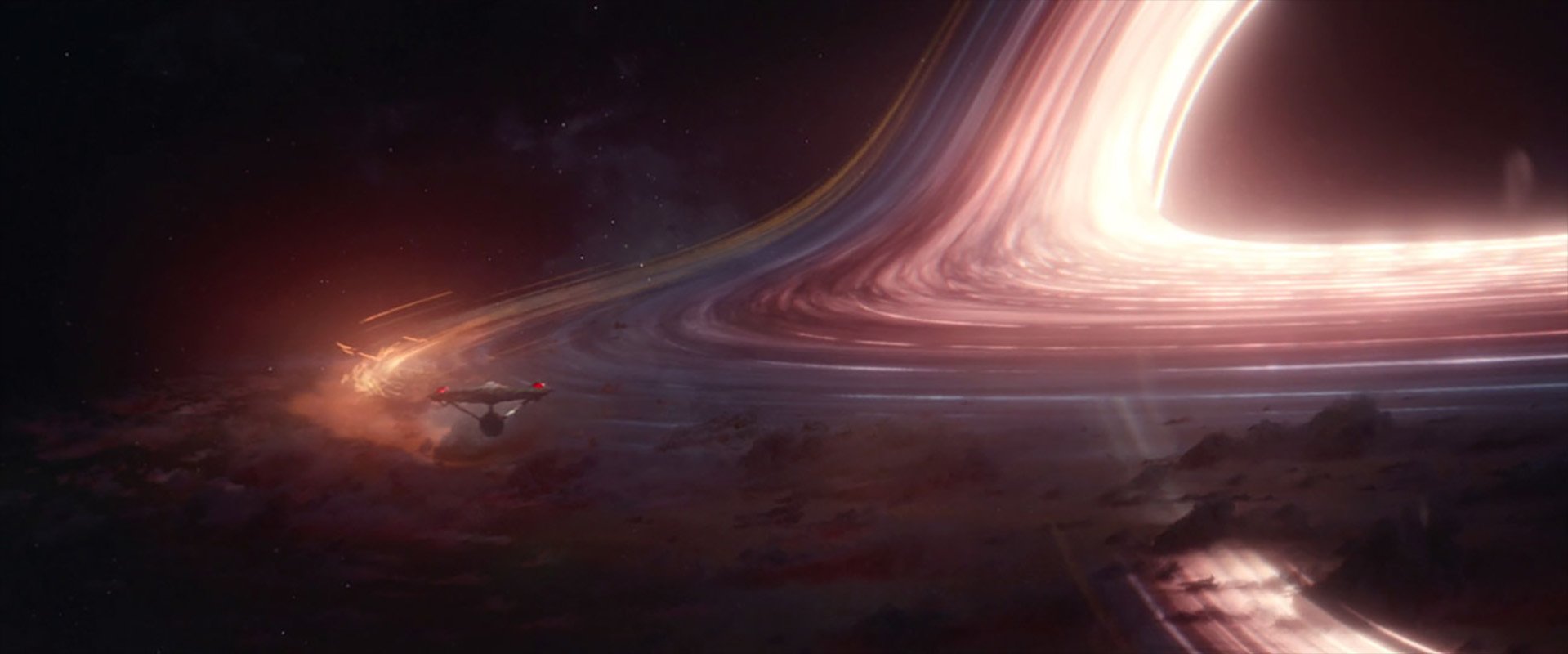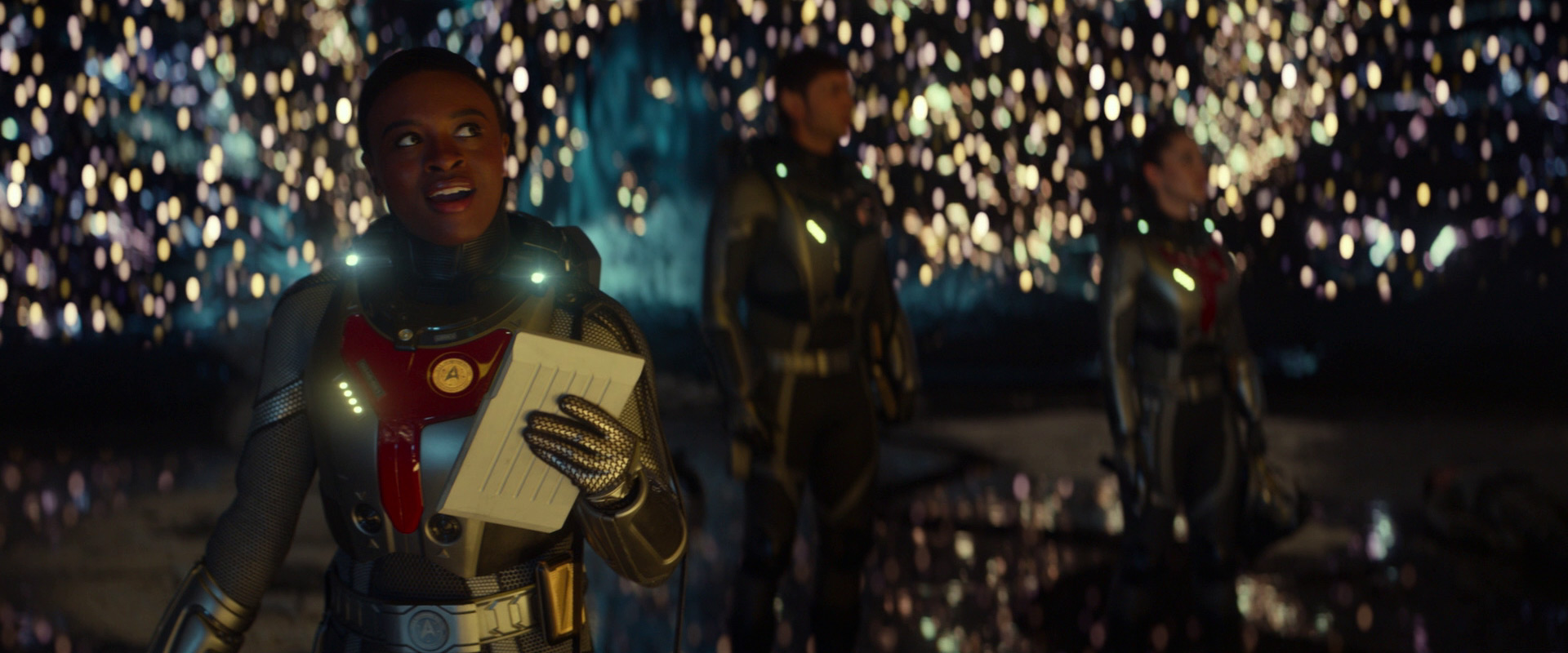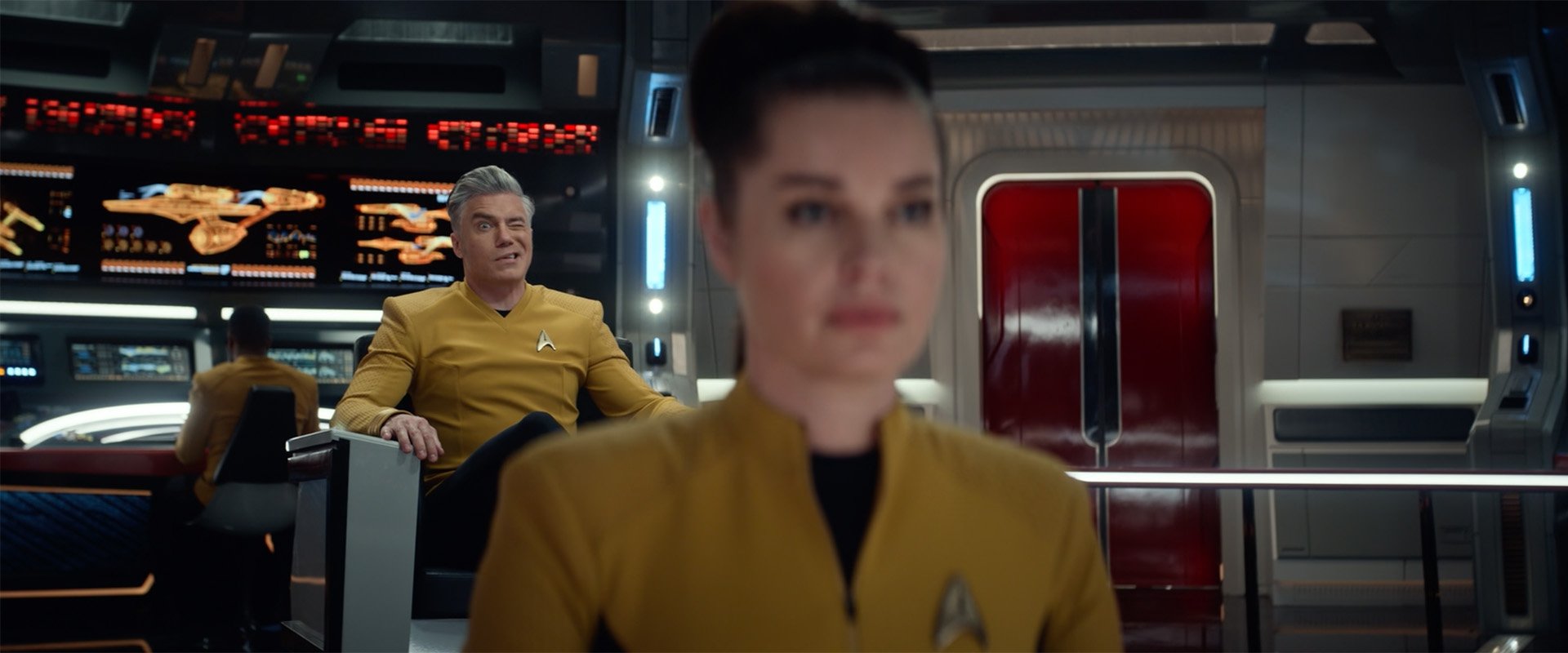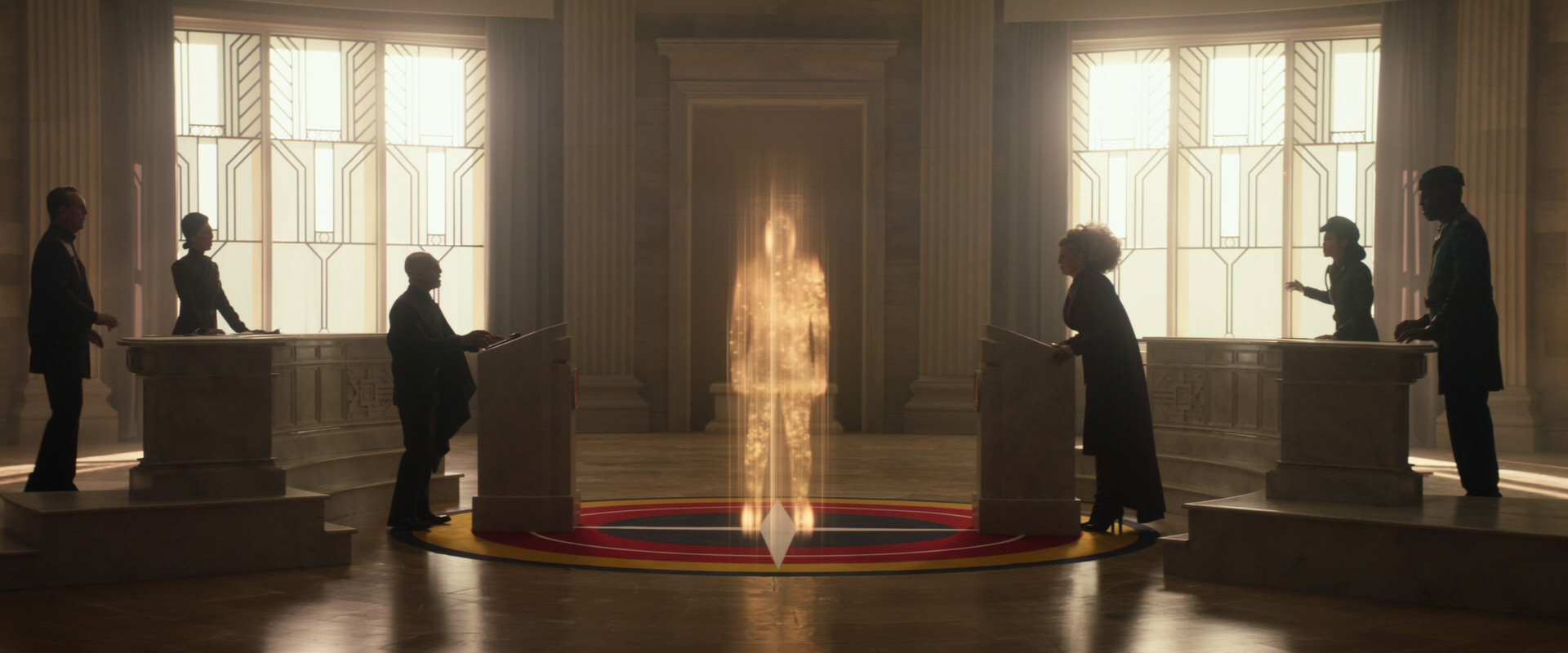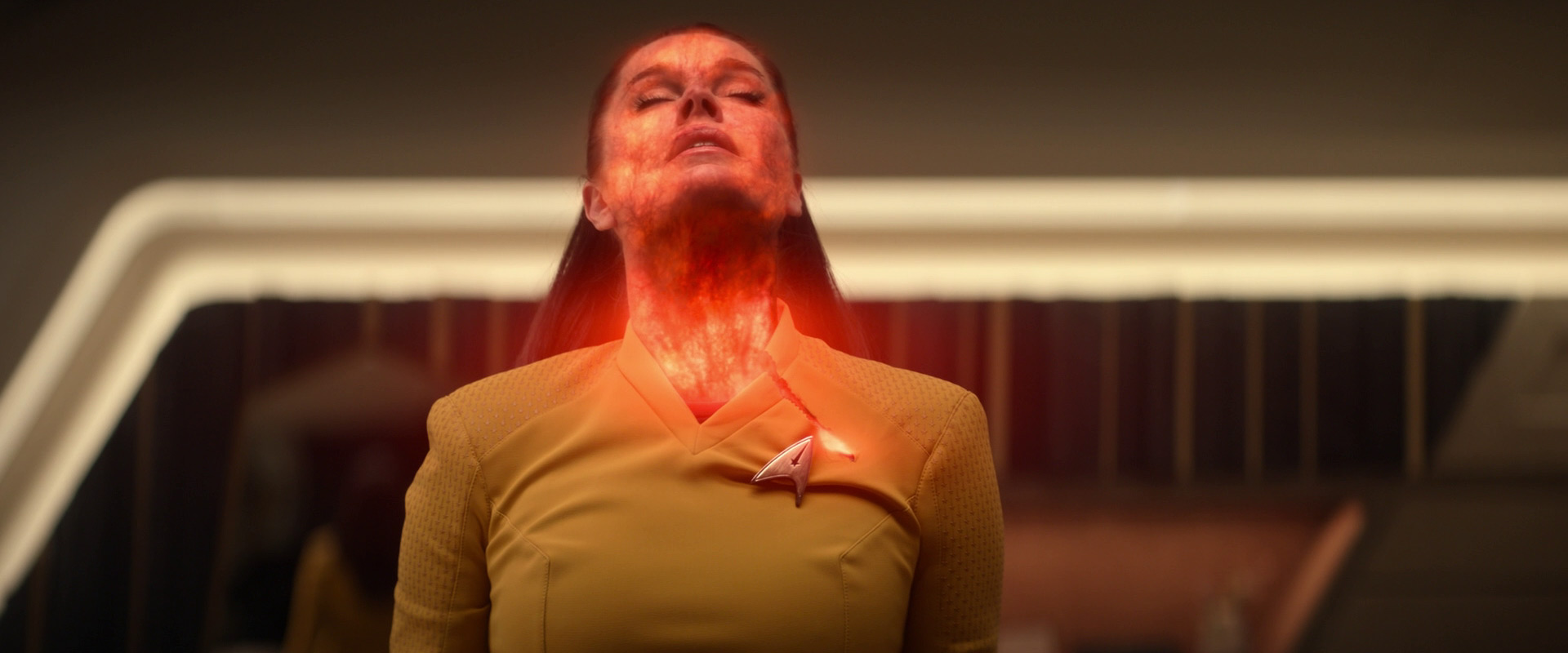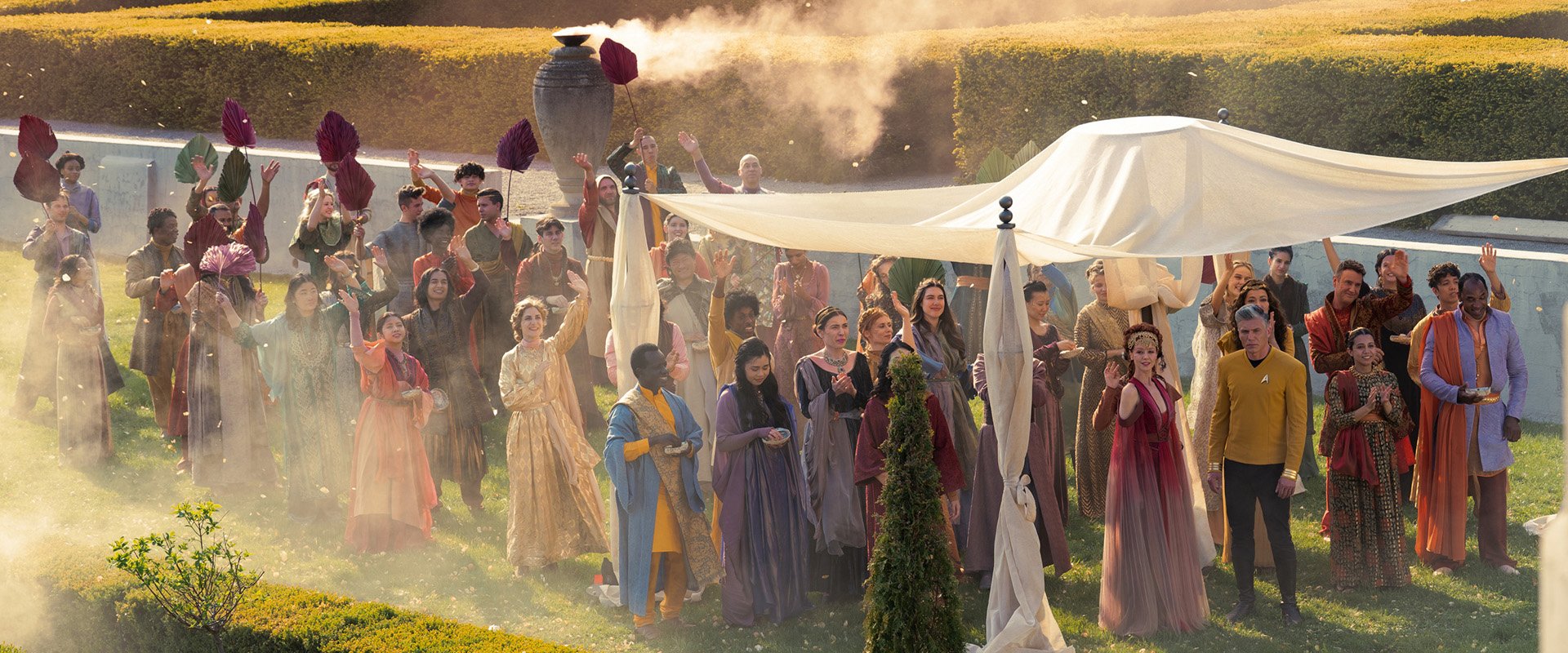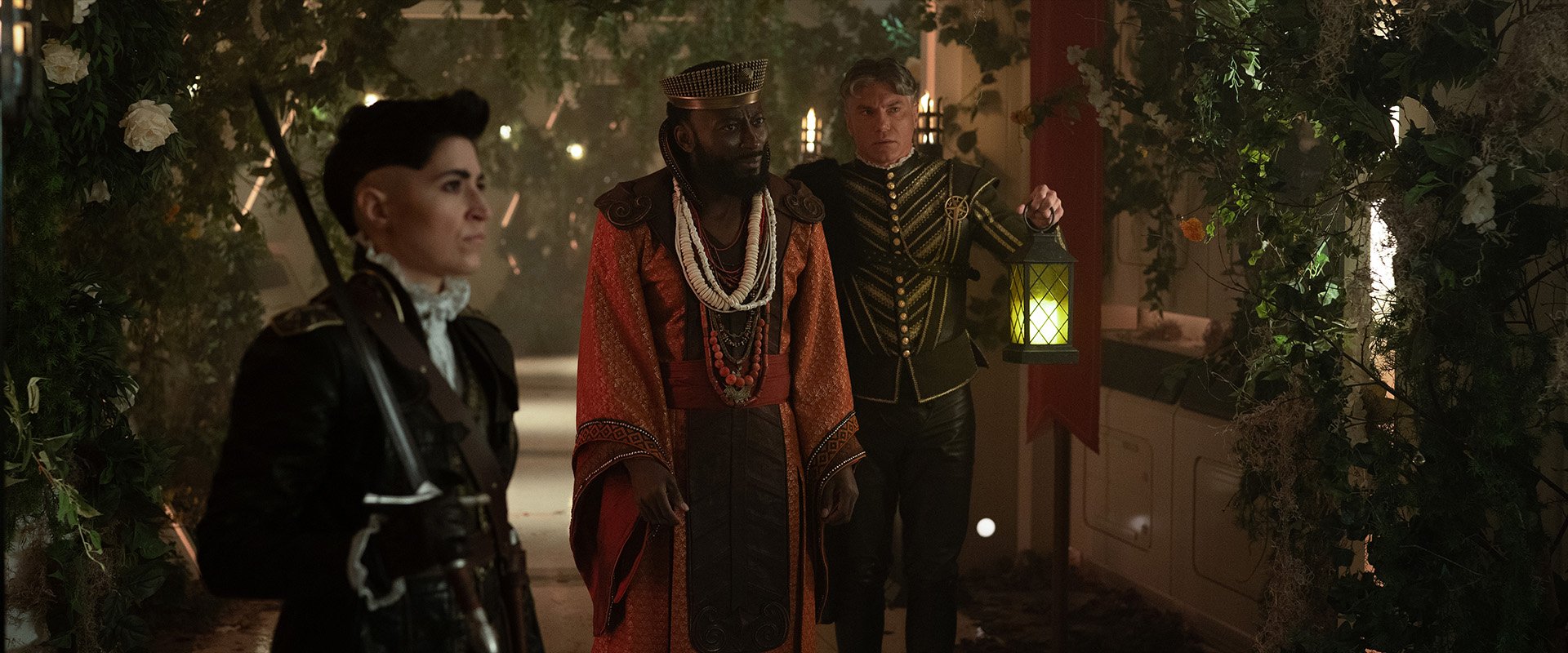
“What the hell?”
If you are interested in hearing my more-immediate thoughts on this episode, I had the opportunity to join the Infinite Diversity podcast to discuss it back in June 2022. I will admit that my opinions really haven’t changed much since then…
I wanted to like this episode. I really did. And you know what? For about 45 minutes I loved it. Unfortunately, this is a 53-minute episode, and the choices that are made in those last eight minutes or so…well…they really bother me to be completely honest. Because asking a young child like Rukyia (Sage Arrindell) to make such a consequential choice as he does at the end of this episode feels unearned, manipulative, and calls into question all sorts of things about whether a young child truly has the understanding to truly have agency in that moment1 we have been seeing Dr. M’Benga (Babs Olusanmokun) reading to Rukya, throughout the season.

Any parent who has read a story to their kid will recognize what happens next. Rukya interrupts, complains about certain aspects of the story, and even suggests an alternate ending. In other words, she acts like a kid, and it all felt completely believable.
What’s less believable to me is the setup for the episode: in his log entry, we hear M’Benga say that Rukya’s time is running out; that she has perhaps days (or even hours) to live. Aside from the brief moment when the First Servant lets her out of the buffer in “Lift Us Where Suffering Cannot Reach,” we never get a sense that the amount of time Rukya spends outside the transporter buffer is a concern.
This suggests one of two things is going on:
- Despite being in the transporter buffer, Rukya’s condition is continuing to worsen, albeit at a much slower rate
- She has spent close to twelve weeks outside of the transporter buffer, since that is the prognosis she was given when diagnosed.
I have a hard time thinking #1 is the correct answer, considering what we we later see with Scotty in “Relics.” If M’Benga had said something about how she can only spend a certain time in the buffer at any one time without risking pattern degradation, that would be one thing, but he doesn’t2.
This suggests that the true reason for the time crunch we see in this episode is that Rukya has run out of time primarily because M’Benga keeps reading to her, which turns what I had thought of as a touching character moment in “Ghosts of Illyria” into an extremely selfish decision!
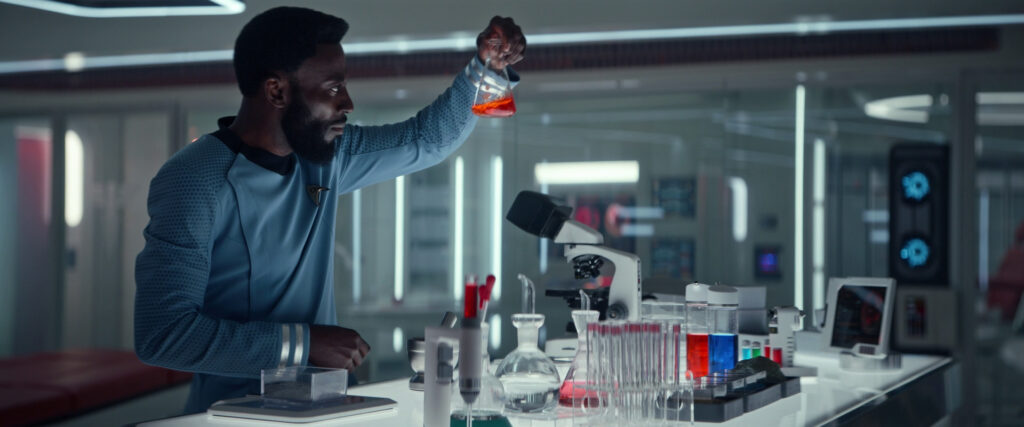
It also doesn’t really help that we haven’t seen much of M’Benga’s quest for a cure for cygnokemia. Yes, we get that scene with Gamal at the end of “Lift Us…” but apparently that doesn’t really go anywhere. To be fair, we don’t have much of an idea of how much time elapses between episodes, and the return (intentional or not) to the non-linear and confusing stardates of TOS3 doesn’t help. Instead, we are often told, rather than shown, that he is looking for a treatment. The exception is the brief montage at the start of this episode before Number One (Rebecca Romijn) comes into sickbay to tell him that he is neglecting his duties4.
The Fun Stuff
Ok, let’s take a break from complaints for now and talk about what I really love about this episode: pretty much everything else.
I’m a sucker for the alternate reality episodes (usually resulting from something holodeck- or Q-related) in which our crew has to cosplay as someone else. Sometimes, like in “QPid” or “The Big Goodbye” it’s literally the crew dressing up in costume. Other times, like in “Our Man Bashir,” the cast gets to perform as someone else, often radically different from what we are used to. This is absolutely the latter, and to a person, the cast does not disappoint.
Melissa Navia is finally given something to do aside from sit at the helm and make quips5. As Sir Adya, Navia becomes the action hero of the story, and she does not disappoint. In stark contrast in terms of performance, Anson Mount is also superb as the sniveling coward Sir Rauth6.
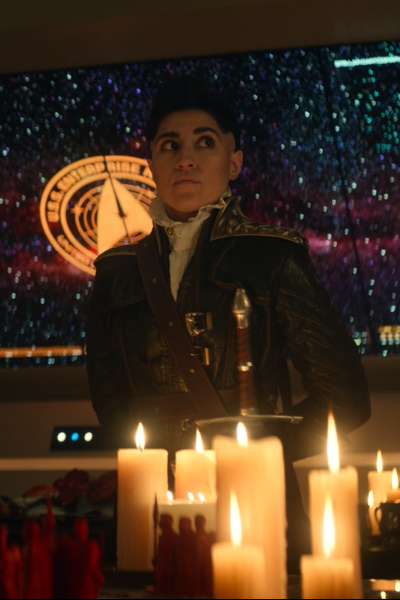
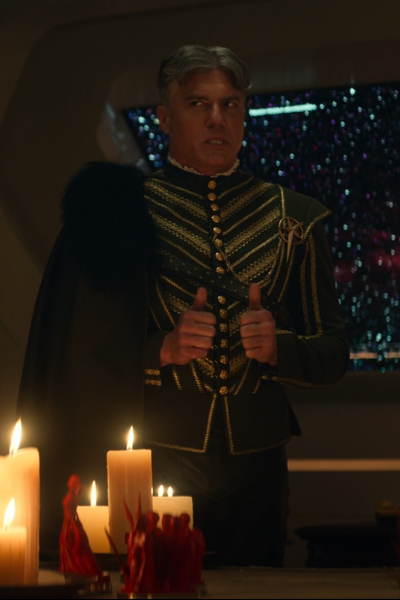
I also appreciate the in media res way we are introduced to this alternate world, where M’Benga is summoned to the bridge because of an accident with Ortegas, only to arrive to a bridge redressed like a royal court. The surreal, minimalist approach taken by the production team to transform the ship, with copious tapestries, torches, and plastic plants doing much of the heavy lifting, reminds me a bit of “Spectre of the Gun” (in a good way).
Returning to sickbay, M’Benga (or should I say, King Ridley) runs across Christine Chapel (Jess Bush), who has transformed into the Druid-like Lady Audrey. Taking advantage of the fact that the sickbay is laregly still intact, while La’an (Christina Chong) arrives shortly thereafter as the classic damsel Princess Thalia with little dog Runa (Christina Chong’s own dog) in tow.
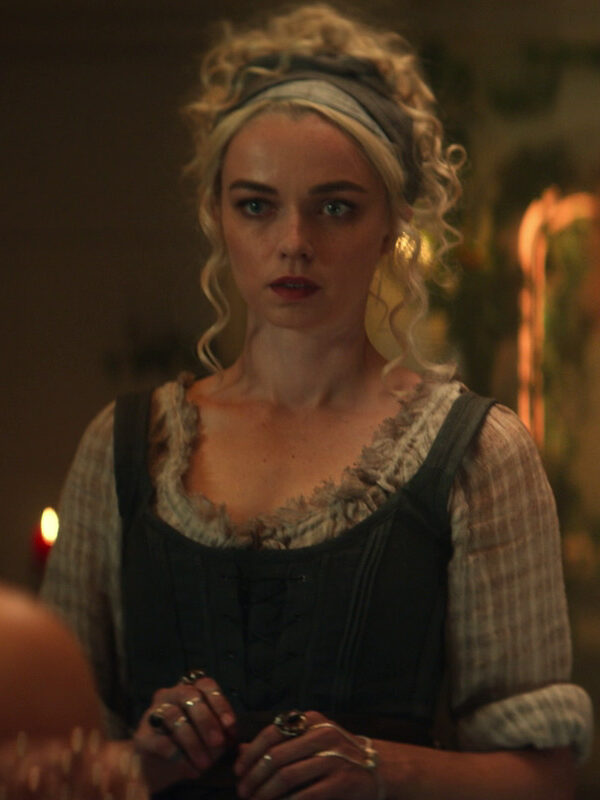
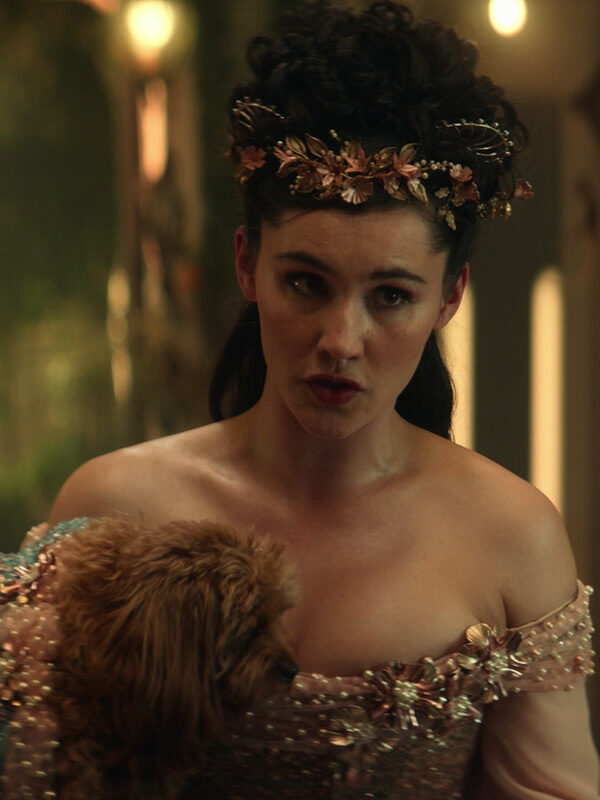
Chong in particular seems to be having an absolute blast playing a character about as diametrically opposed to La’an as possible, and it’s just as much fun to see her turn up the camp, particularly when she says she will sing a lament should King Ridley fall in battle7.
Speaking of camp, Celia Rose Gooding chews so much scenery as the villainous Queen Neve (I mean that as a compliment), while Hemmer (Bruce Horak), like Ortegas, is finally given something to do for the first time since Episode 2. Watching him ham it up in the role of the “wizard” Caster is wonderful, particularly when he unleashes the “full power of his powerful wizard powers.”
Once again, the power of science prevails!
Hemmer
Making Hemmer the linchpin to the story and the means by which M’Benga is able to communicate with the lifeform living in the Jonisian Nebula is clever and a good reminder that, as an Aenar, Hemmer has certain telepathic powers. I remember thinking on a first-watch that we would finally get to see more and better use of the character going forward8.
A Child’s Story
But ultimately, it all comes back to Rukyia, because it turns out that the entity in the nebula has found in her a kindred spirit—someone who is lonely and in need of a companion. Does this mean that Rukyia is conscious while in the buffer? If so that’s a horrifying thought9.
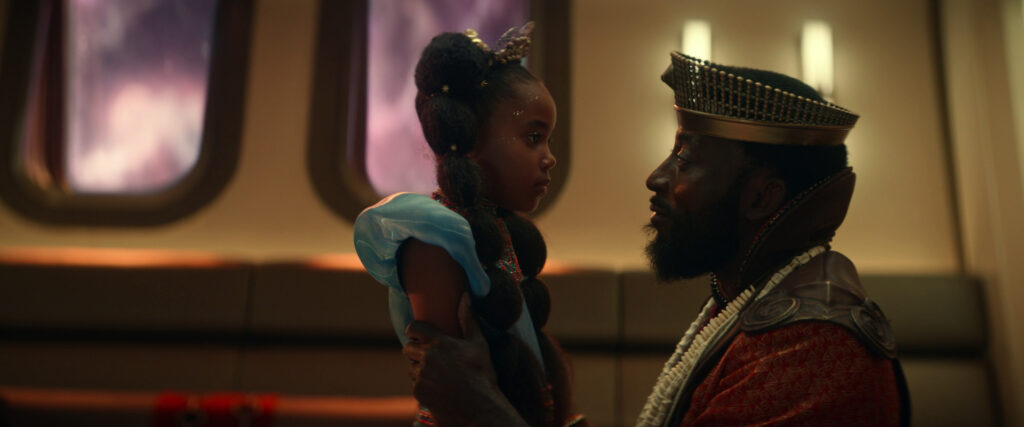
Speaking through Hemmer, the nebula creature explains that it created the medieval fantasy for Rukyia as a way of letting her experience her childhood. It has also managed to remove all trace of cygnokemia, but this presents M’Benga with a choice: either keep everyone on the ship as the characters they now inhabit, or put everything back the way it was, including Rukyia’s illness.
This is beyond frustrating from my perspective as a viewer, and I would have an easier time believing that putting everything back the way it was wasn’t an option if we had seen more of M’Benga struggle with Rukyia’s illness. Instead, we are presented with two impossible choices solely to justify the third option: allowing Rukyia to join the nebula as some sort of consciousness without form.
In the moment, seeing M’Benga and Rukyia both decide that this is what needs to be done really got to me. And when Rukyia comes back as an adult and says that both she and the nebula are happy AND that she named the nebula “Deborah” after her (late?) mother, I was a mess.
But the more I thought about it, the more this entire scenario bothered me. These moments, while affecting, seemed more designed to wrap everything up in a neat and tidy package than ring true from a narrative sense.
Adult Rukiya, in telling her father that she is happy, also says that he should be happy too. But this is someone who has just lost his daughter, possibly forever. To suggest that he should smile and move on for the sake of a 53-minute runtime just rubs me the wrong way.
The worst part of it all is that this could have worked. Imagine if they had rejected the nebula’s offer, returning things back to the way they were (forgetting the artificial accelerated timeline around Rukyia’s condition). Through part of season two, we would then see M’Benga try and fail multiple times to treat her, giving the audience a bit more of an emotional attachment to that storyline. Eventually, M’Benga realizes that the only solution is to have her go off and live with the nebula, so the ship returns and then he has to let her go after trying (on screen) everything else possible.
As it is, it’s a superficially affecting ending that feels manipulative to me and, as a parent, doesn’t really ring true. Of course this is completely my opinion and your mileage may vary.10
Moment of Melumad
Soapbox time11, because I’m limited in my choice here as the producers at Lakeshore Records only included one track from this episode in the soundtrack release. Its not a bad one, but Nami Melumad wrote so much other great material playing off of the fantasy elements of the story that it’s a shame that none of it made it onto the album. Instead we get a cue from the end scene between M’Benga and Ruyia that is quite lovely, but I cannot help but wish we got more to choose from.
Supplemental Logs
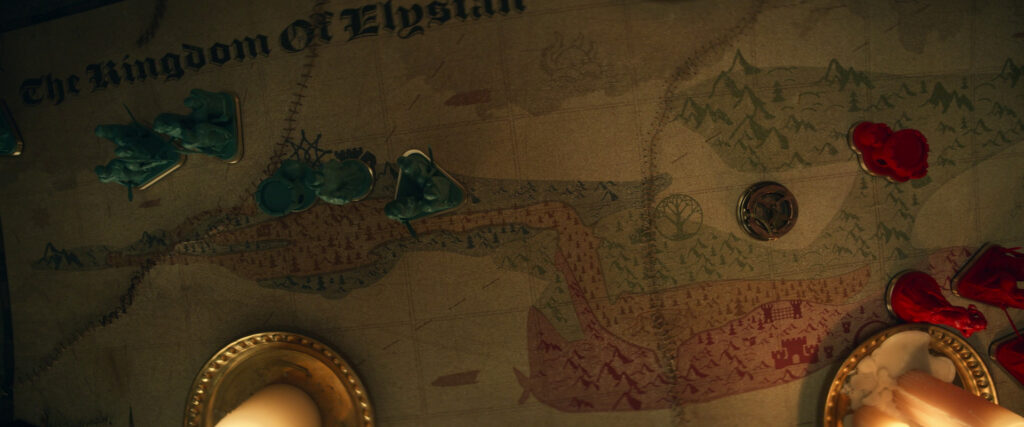
- M’Benga’s research lab setup is NOT OSHA-compliant
- I really like how the map of the kingdom is shaped like Enterprise
- I completely omitted Number One’s turn as the huntress Z’ymira, whose relationship with Adya is M’Benga’s first clue that something is amiss and that his daughter is involved (she always wanted the ending to be one where they team up).
To reference a “wonderful” episode of TNG, for all we know this is another Isabella situation12
It’s a real shame too, because there’s so much about this episode that I like, even love. Any time that we see the characters that we know and love acting differently it’s always a treat. And here, we get to see the main cast really have a lot of fun playing alternate characters taken from the children’s book “The Kingdom of Elysian”13By Benny Russell, no less!↩
At least as far as I’m aware…if you know different, please let me know!↩
See: the stardate in “Memento Mori.”↩
On first viewing, I thought that M’Benga getting a blast of some kind of gas during the research montage would be the cause of everything else that happens.↩
You better believe I will have more to say on this when we get to season two…↩
with Pike’s Peak reduced to a hilariously bad center-part↩
“Great…” responds M’Benga in a fantastically deadpan line-reading from Olusanmokun)↩
Oh well…↩
And one that reminds me of Moriarty’s plight at the start of “Ship in a Bottle”↩
If you happen to really love this story, that’s great, and who am I to tell you otherwise?↩
Apparently I haven’t complained enough in this post *eyeroll.gif*↩
